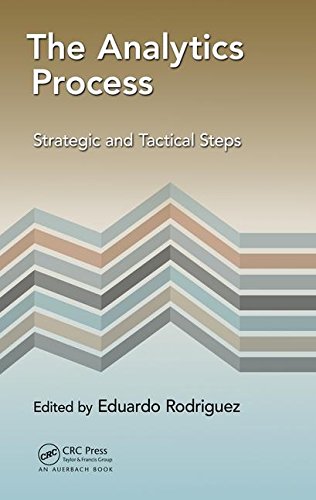

Most ebook files are in PDF format, so you can easily read them using various software such as Foxit Reader or directly on the Google Chrome browser.
Some ebook files are released by publishers in other formats such as .awz, .mobi, .epub, .fb2, etc. You may need to install specific software to read these formats on mobile/PC, such as Calibre.
Please read the tutorial at this link: https://ebookbell.com/faq
We offer FREE conversion to the popular formats you request; however, this may take some time. Therefore, right after payment, please email us, and we will try to provide the service as quickly as possible.
For some exceptional file formats or broken links (if any), please refrain from opening any disputes. Instead, email us first, and we will try to assist within a maximum of 6 hours.
EbookBell Team

5.0
80 reviewsThis book is about the process of using analytics and the capabilities of analytics in today’s organizations. Cutting through the buzz surrounding the term analytics and the overloaded expectations about using analytics, the book demystifies analytics with an in-depth examination of concepts grounded in operations research and management science.
Analytics as a set of tools and processes is only as effective as:
For this reason, the book focuses on the analytics process. What is intrinsic to analytics’ real organizational impact are the careful application of tools and the thoughtful application of their outcomes. This work emphasizes analytics as part of a process that supports decision-making within organizations. It wants to debunk overblown expectations that somehow analytics outputs or analytics as applied to other concepts, such as Big Data, are the be-all and end-all of the analytics process. They are, instead, only a step within a holistic and critical approach to management thinking that can create real value for an organization.
To develop this holistic approach, the book is divided into two sections that examine concepts and applications. The first section makes the case for executive management taking a holistic approach to analytics. It draws on rich research in operations and management science that form the context in which analytics tools are to be applied. There is a strong emphasis on knowledge management concepts and techniques, as well as risk management concepts and techniques. The second section focuses on both the use of the analytics process and organizational issues that are required to make the analytics process relevant and impactful.